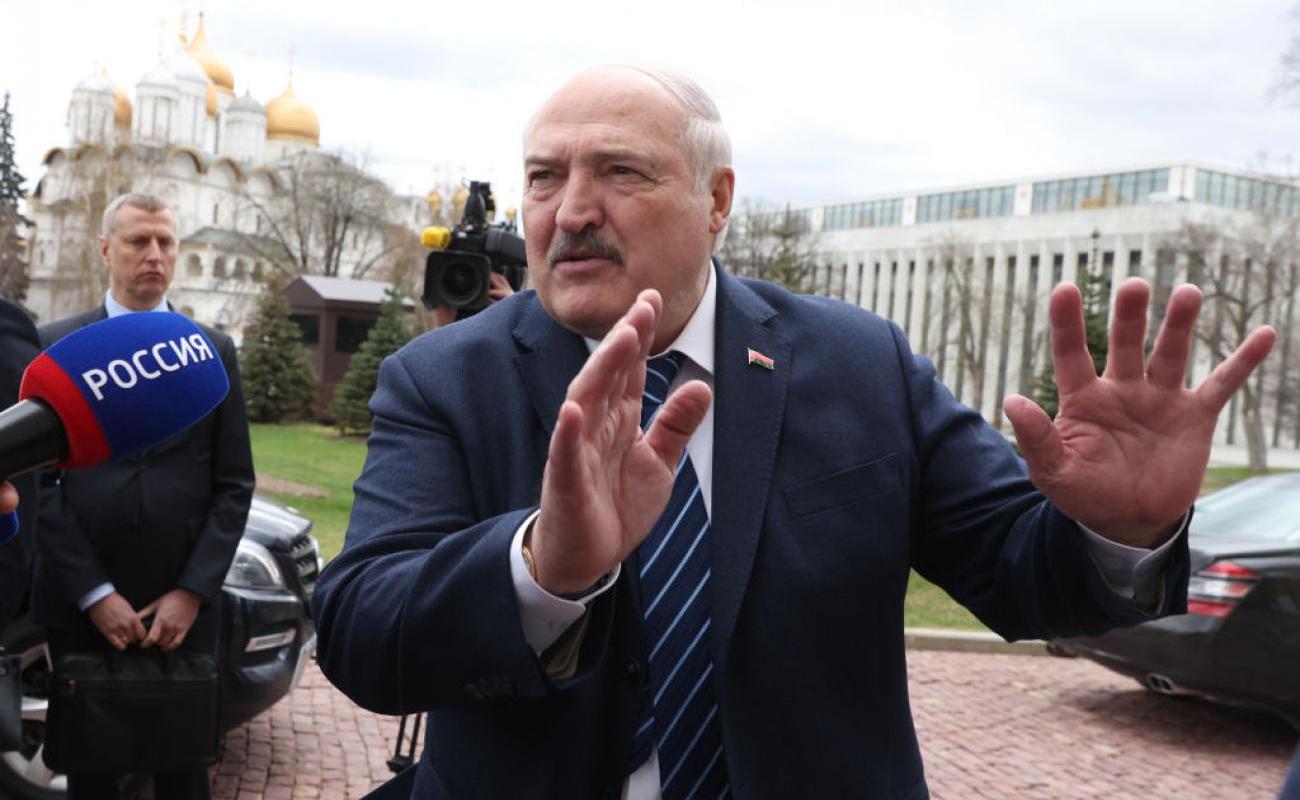Belarus’ propaganda machine mobilises citizens for Lukashenko’s re-election campaign

Belarus' upcoming presidential elections in 2025 take place under repression and full governmental control, yet the regime still feels compelled to mobilise people for pre-election propaganda campaigns.
On 23 October, strongman Alexander Lukashenko declared his intention to run again in the upcoming presidential elections in Belarus. “I will [run again] if my supporters say that I must. Of course, they will do it,” Lukashenko told Russian media.
His statement was followed by an extensive media campaign, 'You Must!' originally called 'Nado!' aimed at motivating Lukashenko to pursue his candidacy.
Belarusians of various backgrounds, from public servants and policemen to soldiers, students, sportsmen, and workers, participated in flashmob videos and events, chanting “You Must!” and lined up the slogan words.
Does it mean that most Belarusians changed their position after the attempted revolution in 2020? A closer analysis reveals that this campaign appears to be nothing more than poorly orchestrated propaganda, where Belarusian people are rather reluctant participants than actual Lukashenko supporters.
The notable feature of the campaign is its staged nature.
As Belarusian political analyst Valer Karbalevich said, it looks odd for this initiative encouraging Lukashenko to participate in the elections to have been launched after he had already announced his decision to run.
Such a logical inconsistency may stem from rescheduling the elections from February to January 2025, a change for which the Belarusian bureaucratic and propaganda systems were unprepared. Additionally, this media campaign is limited to events organised by the Belarusian government and government-controlled organisations.
According to historian and political scientist Alexander Fridman, if the Belarusian people genuinely intended to support Lukashenko, there would be no need for the government to broadcast this through official channels.
People would demonstrate their loyalty and organise the You Must! flashmobs independently, such as through their social networks. But this is barely noticeable in the local media field.
These factors together suggest that Belarusian state propaganda has failed to effectively carry out its primary purpose – to shape and influence public opinion. Instead of influencing people’s minds, it uses them as a tool for its own events that are more about pleasing Lukashenko than genuinely engaging the population.
This clumsy approach is also rooted in the actions of Lukashenko’s regime. Widespread political repression in Belarus has forced the skilled workforce out of various industries, including governmental media.
Meanwhile, the internal independent media landscape – once capable of exposing the regime's implausible pre-election propaganda and forcing a reaction – has been completely cleansed.
But why do Belarusians agree to take part in such propaganda events? Despite pro-regime media calling the You Must! campaign the most consolidated flashmob in Belarus and comparing it to the joint signing of the national anthem, the situation looks different for the campaign participants and even its organisers.
Apolitical Belarusians generally do not seem to view participation in such activities as shameful. However, the oppressive environment – marked by issues within the intelligence services, the risk of job loss, and the difficulty of finding new employment due to a "bad" political background – has pushed the people who did not support Lukashenko to become a part of the regime’s propaganda games.
In addition to pressure, the regime has used disinformation tactics to compel people to participate in the You Must! activities – without warning them of their purpose and nature.
This approach has also created challenges for the organisers of such propaganda events, often state-controlled or state-owned organisations. These groups want to please the regime to avoid inconvenient questions from Belarusian authorities regarding their loyalty, said Belarusian analyst Artyom Shraibman.
“We conduct a [presidential] elections in Belarus for our people, and the interests of our people should be put in the forefront,” Lukashenko said during a recent government meeting.
Sadly, if he meant the people of Belarus, these words are far from the truth. The You Must! campaign turned from “you must become a presidential candidate” to “you must demonstrate your loyalty."
Ultimately, the official media campaigns from Minsk should not deceive EU citizens about the true sentiments of Belarusian society. When the well-being and safety of you, your children and your family are at stake, the political views and resistance to the regime do not appear to remain a priority.
This article is part of the FREIHEIT media project on Europe’s Neighbourhood, funded by the European Media and Information Fund (EMIF).
